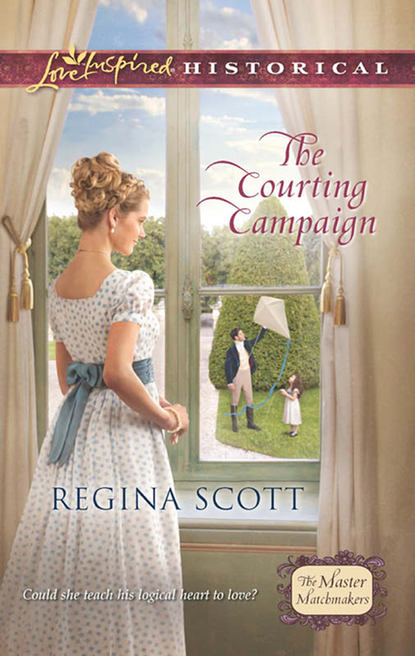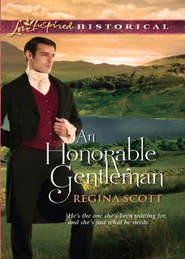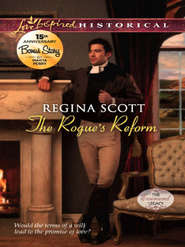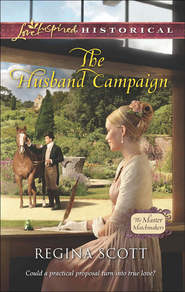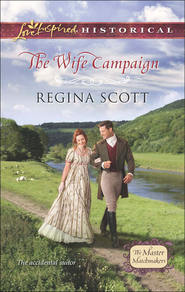По всем вопросам обращайтесь на: info@litportal.ru
(©) 2003-2024.
✖
The Courting Campaign
Настройки чтения
Размер шрифта
Высота строк
Поля
Which somehow reminded him of his life of late.
Outside, he heard a noise. More like a bump and shuffle, really. Very likely the gardener was attempting to replace the shrub Nick had withered when he’d dumped a batch of chemicals after he’d first moved to the Grange. He’d learned to be more cautious in his disposal habits. He didn’t want Alice to accidentally come in contact with the stuff.
Perhaps he ought to try silk next. Kressley had recently proposed its use in commercial lamps. But he wasn’t sure it was practical by itself. Perhaps coated with some chemical to moderate the flammability.
The noise outside was rising in volume now, and he thought he made out words. Was that someone singing? He could place neither the tune nor the key.
Nick shook his head to clear his mind. It didn’t matter what was happening outside. He had work to do. His family’s income came in large part from the leasings of the mine to the east of the Grange. He felt as if he owed it to those men personally to find a safer way for them to work.
He still remembered the first time his father had taken him to the mine, on a gloomy day when Nick was eight. Nick had been about to leave for Eton, and his father seemed to see Nick’s imminent departure as reason to spend time together. Certainly Nick could find no other logical hypothesis for why his father had suddenly remembered his existence.
They’d driven to the mine in the gig, his father at the reins, but obviously determined to show his knowledge of the place. He’d pointed out the shadowed entrances, the stiff metal outbuildings, the men and boys laboring under the weight and darkness. His father’s face had glowed with pride as he described the prosperity, the accomplishment.
Nick had been more interested in how the mine worked. He’d prevailed upon his father to allow him to be lowered in one of the baskets into the pit. He hadn’t been afraid, even as daylight disappeared and blackness swallowed him.
Open-flame lamps produced more light at the bottom, where scarred walls told of past discoveries. Sitting on the floor had been a boy of six, face grimy, clothes grimier. One small fist enclosed the handle of a wooden door built into the wall.
“What are you doing?” Nick asked as he stepped from the basket onto the uneven floor.
“Manning the wind-door,” the boy replied with pride. “We open and close the doors to keep the air flowing.” As if to prove it, he heaved on the handle, and air rushed past Nick, setting the basket beside him to swaying.
That grimy face was the one he saw when he thought about the need for his safety lamp.
Something hit the door of his laboratory, hard. The memory faded. Enough of that nonsense. Each day down in those mines, hundreds of men and boys risked their lives. While it was not entirely his fault a replacement had not been found, he could not forget that a mistake of his had cost lives as well as his status as a natural philosopher. He would not rest until...
“What on earth is all that noise?” he demanded, jumping off his stool. He strode to the door and jerked it open.
Alice gazed up at him, little fingers barely grasping a battledore. The wooden racket was nearly as long as she was. Her eyes seemed disproportionately large for her face, but one look at him and they brightened. “Papa!”
“Alice,” he returned, bemused.
“Good day, Sir Nicholas,” Miss Pyrmont called from a short distance away. She swung her battledore up onto the shoulder of her brown wool gown. He seemed to remember the game that required the rackets also involved a shuttlecock that was cork at one end and feathers at the other. Hardly sufficient to make noise. He struggled to develop a hypothesis about the source of the thuds against his door.
“Miss Pyrmont,” he greeted her. “Why are you here?”
She cocked her head as she strolled closer. She wore no bonnet. Perhaps they were not required for a nanny as they seemed to be for other ladies. Certainly Charlotte and Ann had never left the house without one. Either way, the sunlight blazed against her pale hair.
“We’re playing a game,” she explained with a smile as she approached him. “I would think that would be obvious to a gentleman given to observation.”
Alice was still gazing up at him as if equally surprised he hadn’t figured it out.
“I can see you are playing a game,” Nick replied. “What I don’t understand is why you must play it here.”
“Don’t you like games?” Alice asked.
That was not the issue, but he didn’t think her nanny cared. Indeed, the look in Miss Pyrmont’s muddy eyes as she stopped in front of him was nothing short of challenge.
“Games can be enjoyable,” he started, when Alice dropped her battledore and seized his nearest hand with both of hers.
“Oh, good!” she cried. “Come play!”
He took a stutter-step forward to keep from bowling her over. “No, Alice. Not now.”
He had meant the tone to be firm, but not sharp. His daughter obviously had a different interpretation. She stopped and dropped his hand, and her lower lip trembled. “I’m sorry. I thought you wanted to play with me.”
How was he to answer that? Alice could not understand what drove him. She was too little to remember her mother’s death much less the recent tragedies associated with his work. She couldn’t know the depth for which he needed to atone. Only God knew how much Nick had failed, another reason he found it hard to take his concerns to the Almighty.
Miss Pyrmont had reached their sides. She knelt, brown skirts puddling, and took Alice’s hands in hers. “I’m sure your papa would love to play with us, Alice. We simply caught him at a bad time.” She glanced up at him. “Isn’t that right, sir?”
Nick blew out a breath. “Yes, just so. Thank you, Miss Pyrmont.”
She gave him a quick smile before returning her gaze to Alice, whose face was still pinched.
“Your father has important work to do,” she explained. “We wouldn’t want to keep him from it.”
“Noooooo,” Alice said, the length of the vowel proclaiming her uncertainty.
“Thank you for understanding, Alice,” Nick said. “I’ll be done soon, and then I’ll have more time for games.”
Alice brightened again. How quickly she believed him and with no evidence. A shame his colleagues didn’t have such faith in him. A shame he’d lost such faith.
Miss Pyrmont rose, all smiles, as well. In fact, he noted a distinct change in her appearance when she smiled, as if she somehow grew lighter, taller. The change seemed to lighten his mood, as well. Curious.
“I’m so glad to hear you’re making such progress, Sir Nicholas,” she proclaimed. “Do you think you will be done today, then?”
He could not be so encouraging. In fact, her brightness suddenly felt demanding, asking things of him he knew he could not achieve. Nick took a step back. “Not today, no.”
“Tomorrow then?” she persisted, following him.
“I cannot be certain,” Nick hedged, glancing over his shoulder for the safety of his laboratory.
“The next day, then,” she said with an assurance he was far from feeling. “We should celebrate over tea.”
“You’ll like tea, Papa,” Alice said as if he would be experiencing the brew for the first time. “The bubbles make kisses.”
Kisses? Though he knew for a fact that tea and kisses did not equate, he found his gaze drawn to the pleasing pink of Miss Pyrmont’s lips. As if she’d noticed his look, she took a step back, too.
“What time should Alice and I be ready for you to join us?” she asked.
She seemed to assume his agreement this time. Assumptions were dangerous things, to be used only when no source of direct observation or calculation was available. He did not think it warranted in this instance. Surely Miss Pyrmont had observed that he was too busy for a social convention like tea.
“I fear I cannot give you a precise day when I will be finished,” he told her. “Now, if you’ll excuse me, I should get back to my work. I suggest you find somewhere else to play.”
Alice seemed to crumple in on herself, and he felt as if a weight had been placed on his shoulders. He wished once more he knew how to make her understand. Perhaps she would appreciate his work one day, when she was older. He could imagine having her sit beside him as he explained his process, his hypotheses. She could help him think through his logic, question things he’d perhaps taken for granted. It seemed he needed someone like that in his life, or he would never have overlooked the mistakes in his calculations, much less his wife’s illness.
But as he turned to go, he caught sight of Miss Pyrmont’s face. Her chin was thrust out, her eyes narrowed, as if she could not understand him. She was certainly mature enough to realize the importance of his work, might even have been of some use to him in furthering it. But if possible she looked even more disappointed than Alice.
With him.





